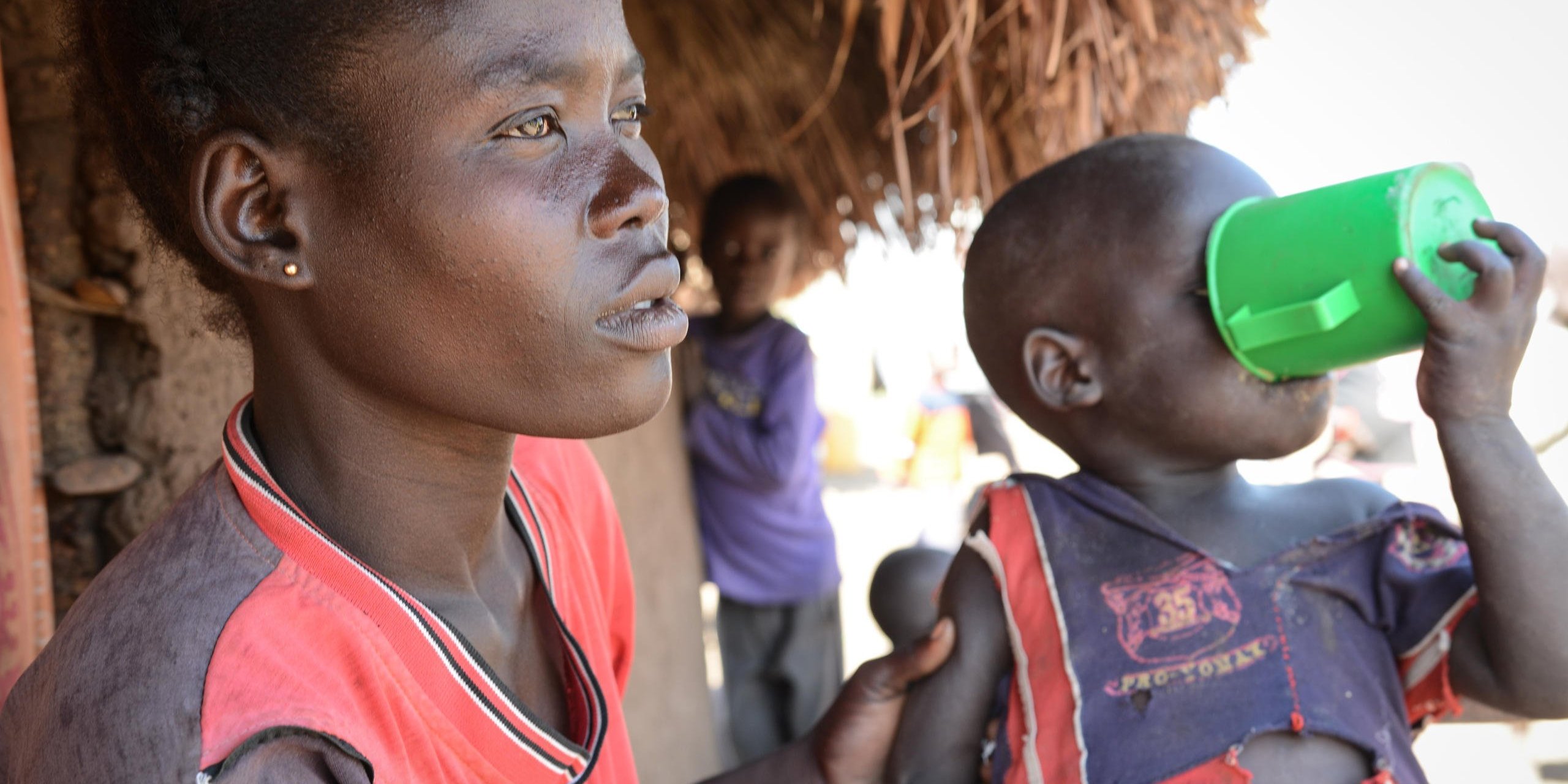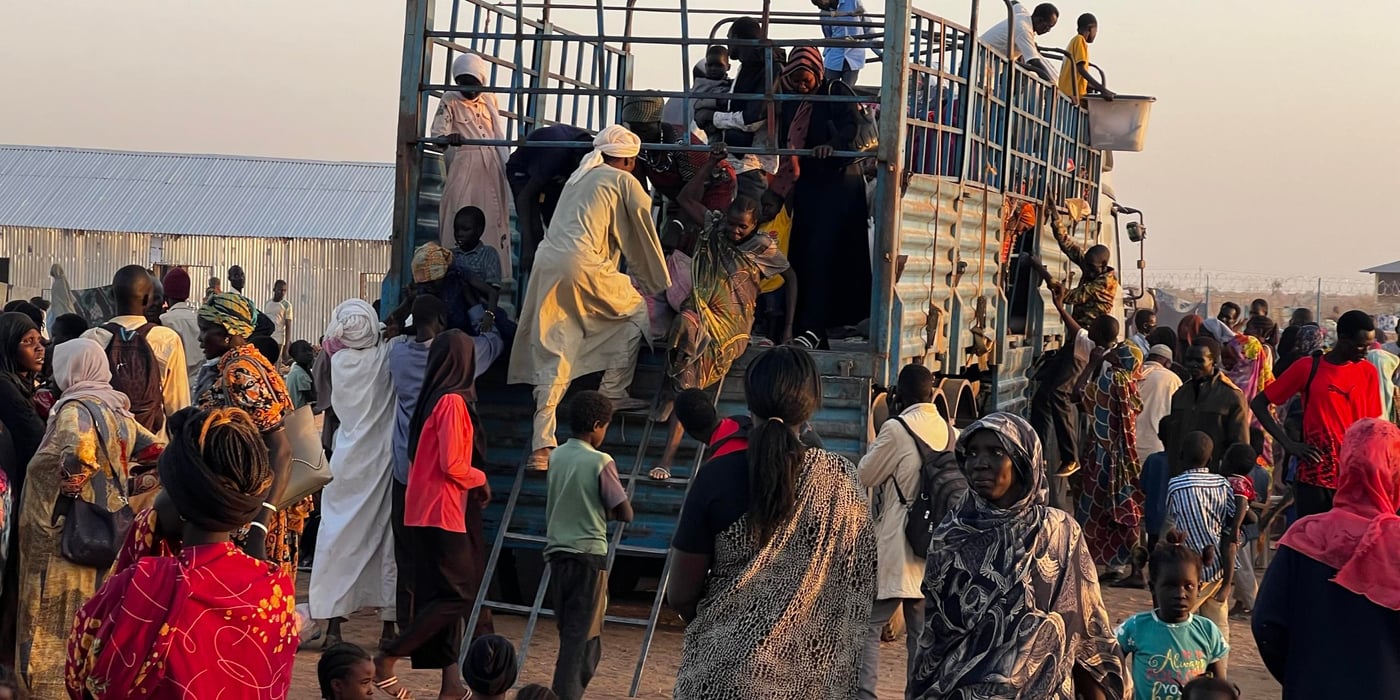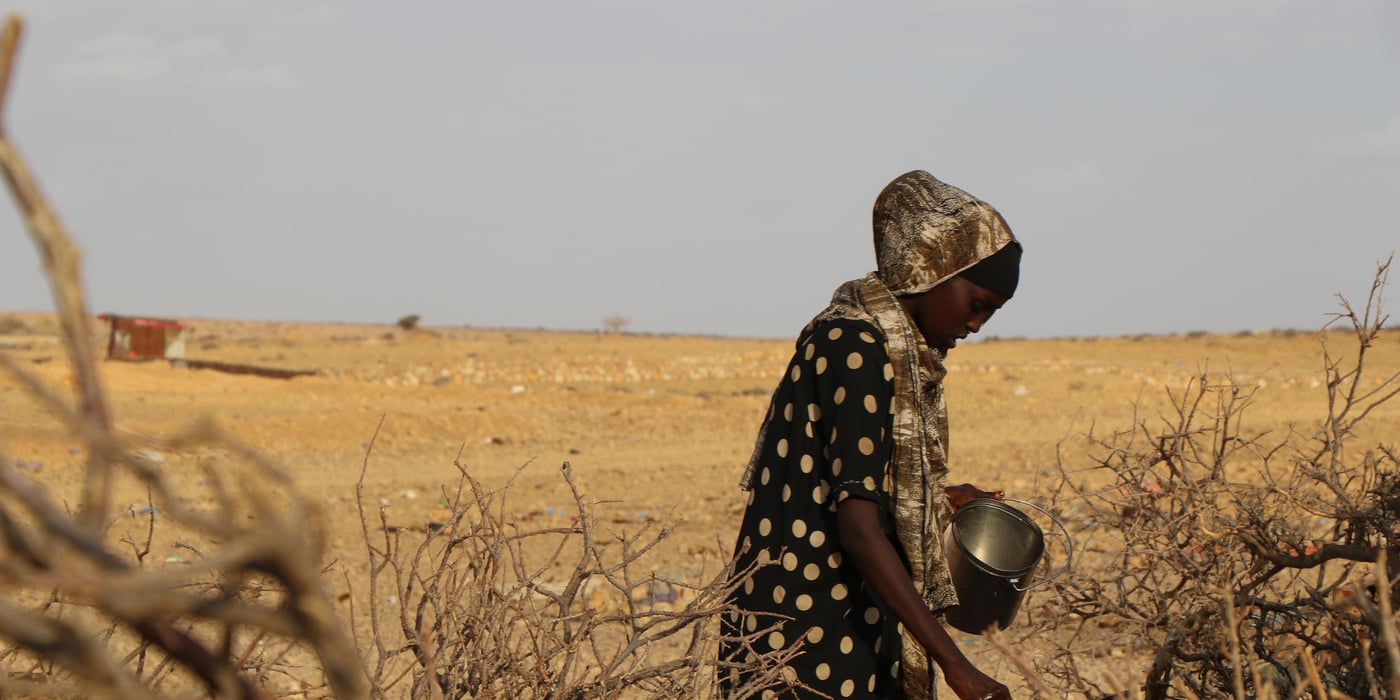
Families crossing the border report that the security situation in South Sudan is deteriorating. Fear of indiscriminate killing, ethnically motivated attacks, torture, looting and burning of homes, and forced recruitment of young people by armed groups are some of the reasons people say they flee. Many newly arrived women and girls report being survivors of rape, according to the UN’s refugee agency.
1,800 South Sudanese have crossed the border on average each day over the past year. Many travel for several days through the bush, afraid of armed groups who have reportedly set up road blocks on main roads to the border.
“Families are escaping a living hell in South Sudan. The stories they tell us when they arrive are truly horrific,” said Muhumed Hussein, the Norwegian Refugee Council (NRC) Country Director for Uganda. “The war in South Sudan continues to rage. The arrival of the one millionth South Sudanese fleeing to Uganda is testament to this.”
The situation in South Sudan is dire, three and a half years into the war. Half the population – 6 million people - do not have enough to eat. Although famine conditions recently subsided in Leer and Mayendit counties thanks to humanitarian assistance, the number of people on the brink of famine has increased to 1.7 million. The spread of cholera is compounding the situation. Close to 18,000 cases have been confirmed since the country’s worst outbreak began about year ago. Over 320 people have died so far.
“South Sudan is the world’s fastest growing refugee crisis. It will likely stay that way until the security situation changes and they no longer feel they have to flee. The barbaric violence endemic in this war guarantees it,” said Hussein.
The situation in Uganda offers respite to families fleeing the brutal conflict. But with more than half a million refugees from South Sudan crossing into Uganda over the last year, and more arriving everyday, the country’s resources are strained.
For example, Bidi Bidi, which was a small village just 9 months ago, has grown into one of the world’s largest refugee settlements with over 272,000 inhabitants. This is equal to the whole population of Newcastle in the United Kingdom.
Despite immense needs and new refugees arriving daily, the response operation to the influx is only about 21 per cent funded. More funding is needed in education and learning for children and youths. Eighty-five per cent of the refugee population are children and women.
Funding also needs to be flexible and provided on a multi-year basis so that aid agencies can plan long-term livelihood projects, to reduce refugees’ dependency on food handouts. Additional resources should also be put into educating refugees and host communities about their legal rights, so that they can better mitigate conflict and live side-by-side more peacefully.



